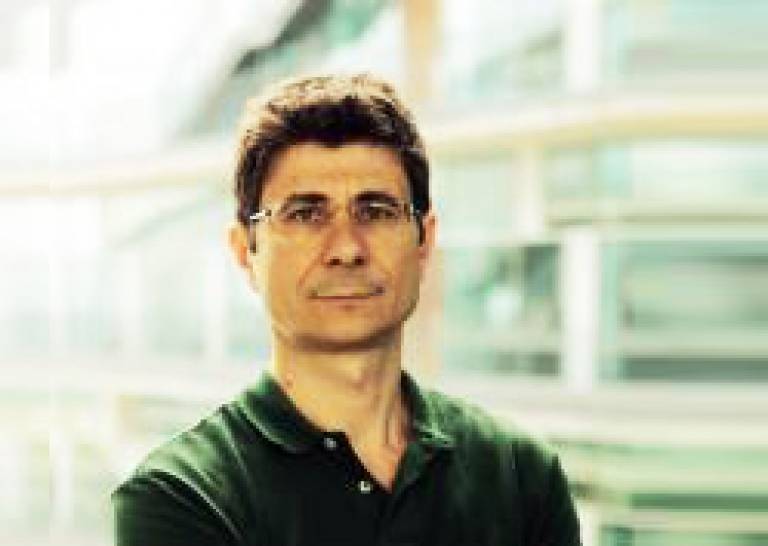UCL Cancer Institute Special Seminar
14 December 2017, 12:00 pm–1:00 pm

Prof Luciano di Croce, Centre for Genomic Regulation, Barcelona presents: The biological role of Polycomb and MLL complexes in stem cells and cancer.
Event Information
Location
-
UCL Cancer Institute, 72 Huntley Street
Polycomb and MLL/Trithorax complexes are evolutionarily conserved chromatin-modifying factors originally identified as part of an epigenetic cellular memory system that maintains repressed or active gene expression states. Recent data indicate that they regulate a plethora of cellular processes, including X chromosome inactivation, genomic imprinting, cell cycle control, stem cell biology, and cancer.Polycomb proteins form at least two distinct complexes: the Polycomb-repressive complexes 1 and 2 (PRC1 and PRC2), both possessing histone-modifying enzymatic activities resulting in monoubiquitination at lysine 119 of histone H2A and methylation at lysine 27 of histone H3, respectively. The catalytic activity and the binding of Polycomb to its genomic sites can be modulated by associated factors.The antagonistic function is performed by MLL complexes that trough deposition of methyl marks on lysine 4 of histone H3 positively regulate transcription, thus counteracting the activity of Polycomb complexes.I will discuss how Polycomb and MLL proteins (including novel associated factors) impact on transcription, genome architecture, and their role in stem cell biology and cancer.
Prof Luciano di Croce academic profile
Hosted by: Dr Richard Jenner
For further information contact: Veronica Dominguez v.dominguez@ucl.ac.uk
Location
UCL Cancer Institute
Courtyard Café
72 Huntley Street
London, WC1E 6DDView Map
This seminar has been sponsored in part by the Biomedical Research Centre and Cancer Research UK
 Close
Close

